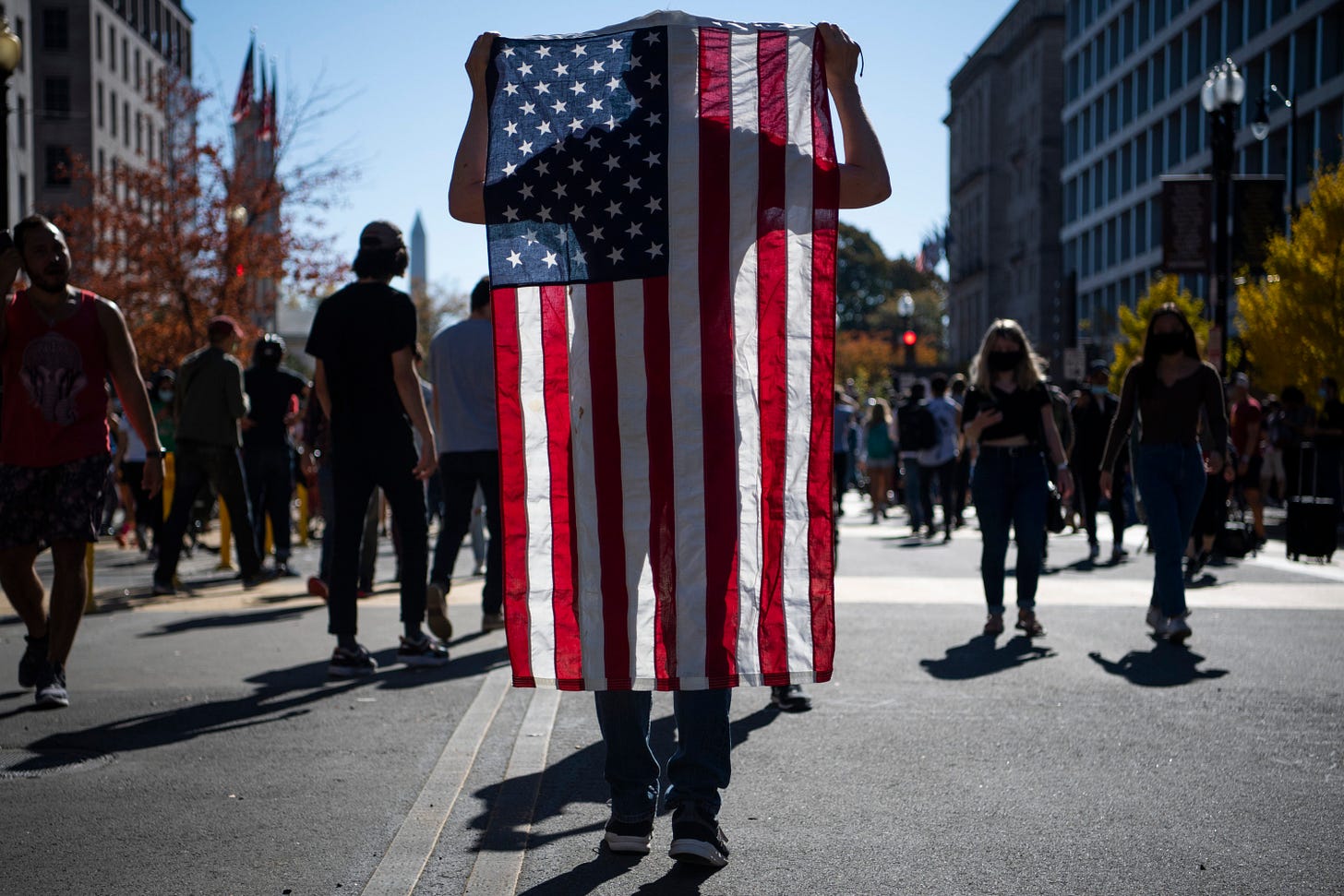The Week Democracy Pushed Back
Some of the important institutions of U.S. politics and civil society stood up to President Trump’s post-election bluster and bullying.

In the ten days since we’ve known the result of the presidential election, Americans who felt the country undone by Donald Trump’s divisive presidency have stood up to his maneuvers to distort our most precious right—the vote. Citizens and leaders of every stripe have used the republic’s constitutional tools to call a bully’s bluff.
For months, the president told us he would treat the election as unfair if he lost, even calling for white supremacist groups to “stand by.” But at this historic moment, under fire from Trump, many of the most important pillars of our democracy—including the “Bill of Rights institutions”—have held firm.
That’s not to say that every American institution fared well. The norms and mores for presidential conduct failed. The Republican party chose power over democratic principles and the rule of law.
Still, it is important to stop and appreciate the institutions that stood up. First in line, the free press and our country’s state-level election rules. Across the board, the exquisitely factual election count reporting by major news organizations bolstered public confidence in the system. For days, journalists from TV and radio, newspapers, magazines, and websites reported in exhausting detail how battleground states’ election officials administered the count in stages under varying state laws—and explicated demographics that determined voting mixes in different groupings of ballots as results rolled in. Scrupulous reporting made a cumbersome complex process transparent.
Fortified by the credibility of the counting process, joyous street celebrations erupted around the country when networks “called” the result on the morning of November 7. These spontaneous manifestations of First Amendment rights “peaceably to assemble” and “to associate” for political ends were leavened with plain old pursuit of happiness.
The vigor of those celebrations built on momentum gained in months of bipartisan public opposition to a second Trump term from national security luminaries, former cabinet-level officials, and former congressional Republican leaders.
As Alexis de Tocqueville famously observed, unlike Europeans, if Americans “want to proclaim a truth or propagate some feeling . . . they form an association” rather than turning to the government.
Over the past week, that insight has been on full display. Organized citizen-groups converted the election result from a presumption Trump intended to rebut to a hard truth he could not bluster away.
The National Council on Election Integrity, a bipartisan group of former government and civic leaders, ran a “We Did It” TV ad campaign congratulating Americans on a secure election despite the global pandemic. The rule-of-law Republicans at the Lincoln Project announced plans to run ads naming law firms litigating unfounded election fraud claims, thereby triggering a series of lawyer withdrawals.
The national, bipartisan group Lawyers Defending American Democracy (with which one of us is involved) released an open letter, signed by over 1,200 lawyers, calling out public officials and lawyers advancing baseless voter fraud claims. And grassroots organizers committed to amass a quarter-million signatures demanding that the Trump administration lift its blockade of Biden’s transition funding.
Remaining faithful to their constitutional oaths, government leaders echoed those citizen-activist calls:
General Mark Milley, chairman of the Joint Chiefs of Staff, publicly declared that the military’s sworn loyalty is to the Constitution, not “to an individual”—deflating the specter that the president might enlist military aid to resist a transfer of power.
Christopher Krebs, the director of the Cybersecurity and Infrastructure Protection Agency, a division of the Department of Homeland Security, repeatedly contradicted Trump’s “election fraud” narrative, and his agency released a statement from a private-public partnership dedicated to election integrity that said “the November 3rd election was the most secure in American history.” The acting DHS secretary then defied a White House order to fire Krebs.
Sixteen Justice Department prosecutors monitoring the 2020 election reported no significant evidence of voter fraud. They publicly urged Attorney General William Barr to rescind his precedent-shattering November 9 memorandum injecting the department into investigations (or related announcements) that could affect the election before certification.
Courts tossed out a ragtag series of post-election Trump legal challenges in five battleground states, rejecting fact-free allegations of fraud.
GOP state legislature leaders in four key states won by Biden stated that they will not use Electoral College vote certification to overturn their state’s popular vote count, absent fraud evidence which they have not seen.
Taken together, such actions of ordinary citizens and institutional leaders demonstrate that our constitutional rules have survived historic stress-testing—and that a widely shared commitment to preserve democratic values limits authoritarian reach.
Our Founders could hardly have imagined a reality-TV president. But they built a constitutional republic to permit an engaged citizenry, a free press, dedicated government officials, and a conscientious judiciary to withstand an unbounded presidential personality, even one as unforeseeable as Donald J. Trump.






